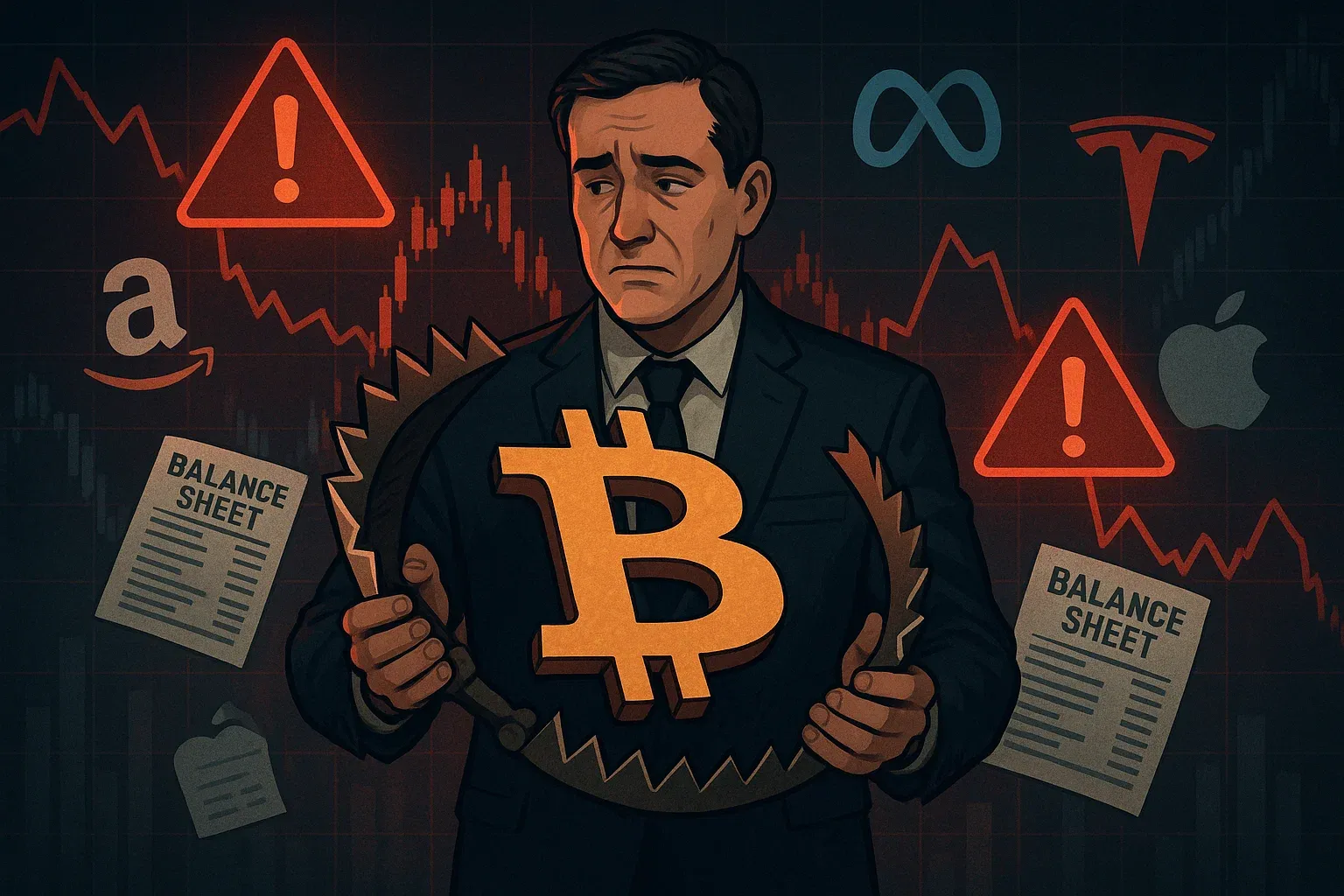VanEck is sounding the alarm: companies buying Bitcoin risk becoming victims of their own strategy rather than investors. Matthew Sigel, an analyst in the company's cryptocurrency division, said it's time to pull the brakes before it's too late.
When Buying Bitcoin Becomes a Trap
Sigel highlighted a dangerous trend: if listed companies continue to issue shares to buy Bitcoin while their shares are trading at net asset value (NAV), instead of creating value they are simply diluting shareholder capital. "This is getting out of hand," he warned on the social network X.
No public BTC treasury company has traded below its Bitcoin NAV for a sustained period.
- matthew sigel, recovering CFA (@matthew_sigel) June 16, 2025
But at least one is now approaching parity.
As some of these companies raise capital through large at-the-market (ATM) programmes to buy BTC, a risk is emerging: If the stock trades at or near...
And this risk is not just theoretical. The medical technology company Semler Scientific is already on the brink of disaster. It started buying Bitcoin in May 2024, accumulating as many as 3,808 BTC worth $404.6 million, ranking it 13th among listed companies with the most Bitcoin reserves.
The Bitcoin Paradox
But here's the paradox: while the price of Bitcoin is hitting new records, Semler's shares have plummeted by more than 45% over the year. The company's capitalisation fell to USD 434.7 million, almost to the initial level of 'Bitcoin fever'. In essence, all those purchases of cryptocurrencies did not bring a single penny of profit to shareholders.
The Numbers Don't Lie
Semler's NAV multiplier (mNAV) fell below the critical 1x threshold, to just 0.821x. In simple terms, the company's market value has become less than the value of its Bitcoin reserves. The problem? Every new issue of shares to buy Bitcoin is the equivalent of selling parts of the company at a lower price than their real value. It's a vicious circle: the more Bitcoins you buy with new shares, the more you dilute the capital of existing shareholders without creating any added value.
Like other 'Bitcoin collectors', Semler repeatedly issued shares and took on debt to raise money to buy cryptocurrencies. The reasoning was simple: the price of Bitcoin would go up, dragging the company's shares with it. But the maths turned out to be more complex.
VanEck's Recipe for Saving Companies
Sigel did not limit himself to criticism, proposing a concrete plan of action for companies that had fallen into the Bitcoin trap:
- Suspend ATM programmes if shares remain below 0.95x NAV for 10 consecutive days
- Switch to share buybacks when Bitcoin rises but the company's shares remain firm
- Start a strategic review if the discount to NAV persists - up to and including evaluating mergers, spin-offs or a complete abandonment of the Bitcoin strategy
The analyst placed particular emphasis on executive remuneration: bonuses should be linked to growth in net asset value per share, not the size of the Bitcoin portfolio or the number of shares issued. "Act with discipline while you still have options," he urged corporate executives.
The Last Warning
"Once you start trading at NAV value, equity dilution stops being strategic. It becomes predatory," Sigel concluded harshly. No public company has ever traded below the value of its Bitcoin reserves for long, but Semler came close.
VanEck's warning comes at a crucial time, as Bitcoin continues its run and corporate interest in cryptocurrencies grows. Companies that see Bitcoin as a panacea for all ills may find that the cure is worse than the disease. Bitcoin-related strategies require not only faith in cryptocurrency, but also cold, rational calculations; otherwise, even the boldest bets can turn into very costly mistakes.








